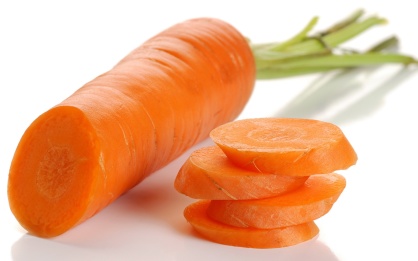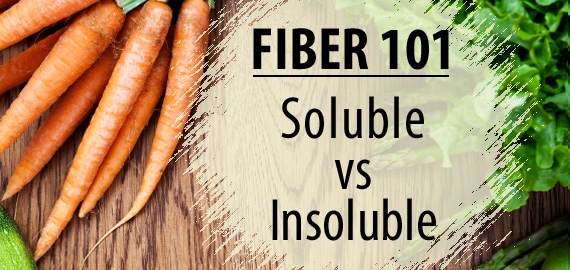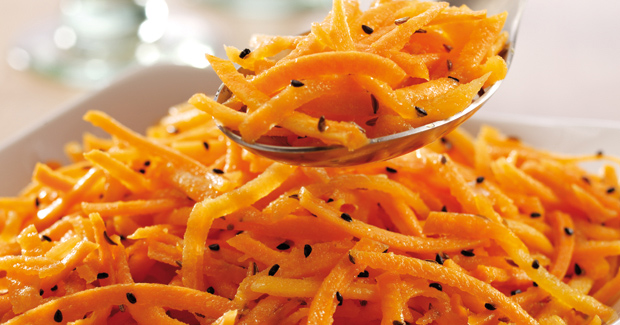However you choose to consume it, there is no doubt that carrots are a healthy addition to your daily diet. The question of whether eating the carrots or drinking the juice is more beneficial for you is dependent on your current health condition and your dietary requirements. In this article, we will consider the pros and cons of both choices. To make a wise and informed choice, you must first understand the nutritional content of carrots and how it benefits your health.
The Nutrient Powerhouse 
Just 100gms of this wonder vegetable contains 41 calories, 10gms carbohydrate, 2.8gms of dietary fiber, 4.7gms of sugar and about 1gm of protein. Carrots are a storehouse for numerous vitamins and minerals. Carrots contain many vitamins like thiamine [B1], riboflavin [B2], niacin [B3], pantothenic acid (B5), vitamin B6, folate (B9), vitamin C and vitamin E. Carrots also contain minerals like manganese, calcium, iron, magnesium, phosphorus, potassium, sodium and zinc.
With 835 μg of beta carotene per 100gms, carrots are one of the safest sources to meet our dietary requirements for Vitamin A. In the human body, β-carotene is converted into retinol [Vitamin A] by the enzyme dioxygenase. This conversion is regulated by the body’s requirement for the Vitamin and any excess β-carotene from foods like carrot gets stored in the fat tissues of the individual. Because of this selective conversion to retinoids, hypervitaminosis is prevented. Overconsumption of vitamin A is toxic to humans and this usually occurs from supplements like tablets or cod liver oil capsules.
Vitamin A is well known for its antioxidant properties and it is also involved in a variety of functions throughout the human body, such as immune function, bone metabolism, gene transcription, hematopoiesis, embryonic development, and reproduction. It is also required for maintaining good skin and cellular health.
Are you Eating Adequate Fiber?
The fiber content in carrots is the main benefit of eating this vegetable rather than juicing it. Fiber plays a very important role in your body. Dietary fiber plays a major role in your digestive health; it is a source of nutrition for the bacterial culture that makes up the mucosal lining which protects the gastrointestinal wall, preventing inflammatory diseases such as IBS, colitis, etc.
Fiber helps to regulate the water content in the stool and helps prevent constipation. Both soluble and insoluble fiber combines with the body’s waste products and helps to remove them through proper channels. Soluble fiber may help lower blood cholesterol levels especially the low-density lipoprotein, or “bad,” cholesterol levels. But keep in mind that it is possible to eat too much fiber.
Our digestive system may get overwhelmed and this can lead to loose stools, bloating, or even diarrhea. If your diet has adequate fiber from other food sources, then juicing the carrot is a quicker way to ensure you get sufficient nutrients from this source.
Are your Nutritional Needs Fulfilled?
When choosing between carrot juice and raw carrots, you have to compare the serving sizes and the nutrition you are receiving. Carrots are rich in fiber and are quite filling, so you tend to eat less of it in a serving.
Since one cup of carrot juice contains approximately three large carrots, your intake of nutrients is much higher when you drink the juice. The three major antioxidant vitamins required by the human body to help protect healthy cells from damage caused by free radicals are beta-carotene, vitamin C, and vitamin E.
Carrots are packed with antioxidants. Carrot Juice is an antioxidant-rich drink that can reduce cancer and high blood pressure. While eating a carrot provides you with five percent vitamin C and 3 percent vitamin E of your recommended daily intake, a cup of carrot juice gives you half the vitamin E you need daily and more than one-fourth of your daily requirement for vitamin C.
While a single large carrot provides 86 percent of your daily requirement of vitamin A, you get 2,256 micrograms of vitamin A from a cup of carrot juice, more than three times your recommended daily intake. So, I recommend your health drink using half a cup of concentrated carrot juice and mix with fruits like apple or pineapple as overdoses of Vitamin A can be toxic.
Carrot juice is also high in B Vitamins and Vitamin K, with a cup of juice providing 41% of vitamin K, 12 percent of riboflavin, 20 percent of thiamine, and 39 percent of vitamin B-6 of your recommended daily intake. Eating a carrot will give you about one-fifth of these vitamin quantities in comparison.
Consuming a raw carrot will give you about half the amount of minerals you can get from a cup of carrot juice. Potassium and phosphorous are required for your nervous system and also for your bone health. You can get one-seventh of your recommended daily intake for these minerals from your carrot juice as well as one-tenth of magnesium and 6 percent of calcium requirements. Magnesium helps in muscle contractions and calcium is what strengthens your bones.
What is My Choice?
My personal choice includes both options. I like crunchy carrot sticks tipped with creamy healthy dips. I try to include them in my diet whenever possible; in soups, salads, gravies, mixed in with my mashed potatoes or added to my sandwich fillings. I don’t recommend drinking large amounts of juice. Other than my daily routine of fresh lemon juice with honey in the morning, I enjoy one glass of juice per day. Carrot juice is no doubt, a regular on the menu.
To discover a tasty carrot juice recipe and to learn more amazing health benefits of carrots such as its anti-cancer properties, liver detoxification abilities and much more, read my previous article:
5 Incredible Carrot Juice Health Benefits and a Great Juicing Recipe.”




